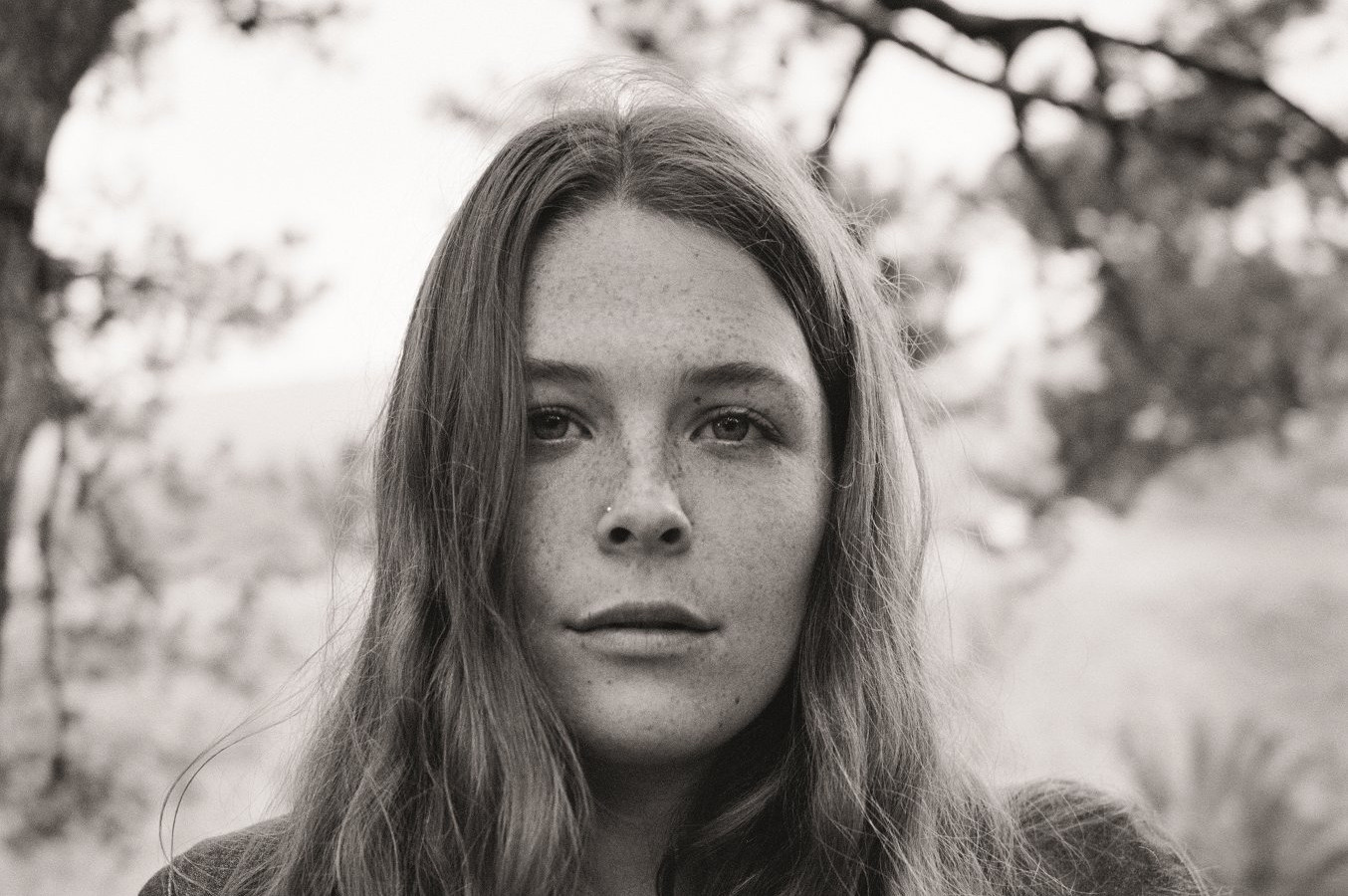Atwood Magazine is excited to share our Editor’s Picks column, written and curated by Editor-in-Chief Mitch Mosk. Every week, Mitch will share a collection of songs, albums, and artists who have caught his ears, eyes, and heart. There is so much incredible music out there just waiting to be heard, and all it takes from us is an open mind and a willingness to listen. Through our Editor’s Picks, we hope to shine a light on our own music discoveries and showcase a diverse array of new and recent releases.
This week’s Editor’s Picks features COIN, McCall, Ayoni, Eve Owen, Fergus, and Close Talker!
 follow EDITOR’S PICKS on Spotify
follow EDITOR’S PICKS on Spotify 
— —
“You Are the Traffic”
COINCOIN’s new track is utterly spellbinding – an intense, dramatic outpouring of dynamic alternative rock spilling out of the deepest crevices of the soul. From its heartfelt, somber beginning to its passionate, stunning chorus and beyond, “You Are the Traffic” is a truly epic overhaul of sound and feeling. It’s something of a left turn for the Nashville trio of Ryan Winnen, Joseph Memmel, and Chase Lawrence – one that reaffirms their talents and reminds us never to assume, or put artists into boxes.
Everyone still looks the same
Except you
And the kids are running faster now
But they’re not moving
And how come everyone is in the way
Except you?
And we’re frozen in the fast lane
Where are we going?
Hey, what can I say?
I keep splitting in two
Hey, what a mistake
There’s no me without you
There is so much to love about this heartache, loss, and change song – from the range of its composition, to the energy COIN inject into the moment – yet perhaps what stands out the most is Chase Lawrence’s dazzling delivery. The frontman gives his full self to the music, leaping from his cool tenor to a feverish falsetto as he swings through a heart-on-sleeve chorus. He commands attention in “You Are the Traffic,” embodying the turbulent and turmoil his words so seamlessly evoke.
“You Are the Traffic” is an invitation to dwell in our darkest depths. It’s an unfiltered scream into the ether, as bittersweet as it is truly beautiful.
On Self Loathing
McCallA full 10/10 in my book, McCall’s sophomore EP is simply stunning – one of the more interesting and engaging listens you will have all year. It’s feverish and tantalizing, unsettling and all-encompassing: A breathtaking, emotionally draining, dramatic entity unto itself (quite literally, it will leave you breathless and gasping for air). Born out of isolation, intimacy, and intense self-reflection, On Self Loathing is an intensely vulnerable, sonically jarring deep dive into the artist’s heart and soul. Arresting experimental and alt-pop music make for an energizing, euphoric experience we will be returning to again and again for years to come.
Tame my heart and the pain,
As it sharpens
There’s nothing even wrong
I hide away in my bed
(Haven’t slept, haven’t slept yet, haven’t slept)
And sometimes it’s too hard to cry
And too hard to shut my eyes
So I lay retching on the tile
Til I find some peace of mind
– “Nothing Even Wrong,” McCall
Independently released September 18, 2020, On Self Loathing is simply sublime; urgency and anxiety manifest in this thirteen-minute overhaul that confronts our innermost demons and insecurities head-on, tackling deep-seated issues that speak to who we are in the very depths of our souls. It’s an emotional, dynamically intoxicating musical papier-mâché: Reminiscent to Bon Iver’s 22, A Million, Glass Animals’ Dreamland, and the works of Gordi and James Blake, On Self Loathing is steeped in exploration and intent. It is not challenging, but it is not meant to be an easy listen, either: Emotions aren’t easy.
You will come away from this music rejuvenated and refreshed, perhaps with a renewed sense of purpose and resolve. McCall is fearless, and her art is fearless too: On Self Loathing is a perfect thirteen-minute immersion that, rather than escape from life, confronts it head-on. Few artists dare be so direct in their music, and even fewer create an entire multi-track project out of it. McCall is singular in nature, substance, style, and sound – and her EP is without a doubt one of the year’s best.
“Unmoved (A Black Woman Truth)”
AyoniSinger/songwriter Ayoni’s “Unmoved (A Black Woman Truth)” is a stirring, celestial upheaval of pain channeled into stirringly beautiful music. It’s heartbreaking poetry put to unimaginably gorgeous folk (think The Staves) – with achingly distinct harmonies and high-flying vocals soaring over a sweetly strumming acoustic guitar. “I’ll leave the way I came: Unseen, unheard, unmoved; a Black woman truth,” the Barbadian born, Los Angeles-based artist sings from the top. So begins an unraveling of deep emotional and societal value, as Ayoni speaks to systemic racism and gender issues rampant throughout our very broken culture:
I’ll leave the way I came
Unseen, unheard, unmoved
A black woman truth
Four years old too Black to play
My first crush showed me all the right shades for his love
And it brands you
You get a new leader and think you know trauma
I’m 20 years of breakdowns and mantras
So, spare me the shock in looking at yourselves
It scares me there’s shock I could love myself
How I do…
Ayoni’s voice is already a force to be reckoned with; add to that her evocative lyrical prowess, and she is unstoppable. She addresses police brutality and collective societal ignorance, rising from silence to shouts and back down to silence again. “Are you sitting comfortably while we bleed in vain? I’ve died by other names,” she sings at one point, proceeding to forcefully assert herself with a tempestuous musical upheaval. Her voice embodies the anger and pain in her words; this is her shining moment, but one that is not for her – but for the many who have been needlessly lost, only because of the color of their skin. Ayoni ensures this becomes a collective burden – a guilt we can’t shake; a loss we share – as she welcomes all who listen in to join her and feel what she feels so very deep down inside:
Please make me feel you care my ally
Are you prepared
To lose your sleep
To bare your teeth
To break like me
Cry in the bathroom (break down and cry)
But they’ll never have you
It’s always been bigger than this (bigger than this)
And I fucking swear, I swear down
That we love ourselves politically,
It’s rebellious, my heart
“This song is my every uttered whisper and prayer,” Ayoni shared upon the song’s summer release. “It is every heartbreak, micro-aggression, breakdown in the bathroom, and every swallowed fit of rage. But most importantly it is every single moment I remembered the walking poems that are my Black sisters, the breathing reasons to continue fighting to forge a path forward. So here I remain unmovable and unmoved.”
“Unmoved (A Black Woman Truth)” is a fight song. It’s a stirring, raw, impassioned, and unapologetically visceral immersion of Ayoni’s experience as a Black woman living in the United States. It’s a beautiful song, and it should make you angry – angry about the events that transpired in order for this music to come to life in the first place; angry that so much pain could be inflicted upon someone. I came away from “Unmoved” pained and inspired, and I hope all who listen feel the same. We can’t keep living like this.
“Mother”
Eve OwenEve Owen is up in the air and down on the ground on “Mother,” one of the standout singles from her recently-released debut album Don’t Let the Ink Dry. Guitars rollick to and from in the background as Owen lead through cool, expressive vocals that ebb and flow like waves in the ocean: Her words melt like a caress atop fervent overdrive, with subtle and nuanced affectations turning an otherwise simple phrase into one so full of life and unspoken emotion. Never mind the song’s cataclysmic conclusion (itself a force to behold); this three minute journey is one magnificent, cathartic exhale that leaves us exhilarated and ready for another round.
Well I’m blue in my lungs
And the phone it rings on
And the violets sing too loud
And the violets sing too loud
Well I’m blue in my lungs
And the phone it rings on
And the violets sing too loud
And the violets sing too loud
O mother, I’m heavy-hearted tonight
“Enough for You”
FergusFew artists are more self-critical and introspective than British singer/songwriter Fergus, and no one is better at turning pain into something beautiful. For three long years, the London-based troubadour has spellbound and enchanted with songs of heartbreak and doubt, nostalgia and regret, submission and surrender. His latest release is one of his greatest to date: Poignant and pulsating, “Enough for You” is an intimate anthem that evolves Fergus’ signature tenderness into a passionate, bittersweet upheaval.
Fergus’ inimitable honesty continues to be his guiding light, but the highs are highers and the lows lower – almost silent; and in combining these opposing elements of light and dark, energy and inertia, Fergus has delivered a veritable banger. Produced once again by Jake Gosling (Ed Sheeran, Keane, Shawn Mendes), this song rises as Fergus’ shining moment of truth: It’s lyrics find him wrestling with intimate pains and rising through our strengths to embrace that which we love most about ourselves.
When you drink
You push me down
Back in that box
And I hate it there
I’m trying to fix my faults
And get back in my head
But I hate it there
Now everything we say
Becomes a new regret
And I hate regret
I’m trying to fix my faults
And I wish everything I do
Was enough for you
Like most of Fergus’ repertoire, the song sounds quite sad – yet there is so much depth here as the singer/songwriter actively takes steps to overcome and take hold of this sadness. Such perseverance may come off melancholy, sure, but there’s a journey here – and those first steps mean the world to a wayward soul in search of balance and home:
“Second Best”
Close TalkerThis track is a pulsing embodiment of the heat of the moment. It’s a little stick of new wave / indie rock fire – a slow-burning, rising jam that lives for the journey, not the end point. It’s polished and smart, controlled and ambient; an impressive immersion of delicious sound. The focus track off Close Talker’s How Do We Stay Here?Deluxe Edition (released this August), “Second Best’ is a first in my book.
“‘Second Best’ is about realizing what is most important in our lives, that the most meaningful things in life come from sharing time with the people closest to us,” the band explains. “As a touring band, life on the road can be grinding, and it can wear you down fast if you’re not careful. A night in Paris can turn into just another night in the basement of a bar, and the only thing you start to crave is home; being around the people that our songs are about, and realizing that at that moment, the band can feel like its second best. It’s about the late night calls when you know no one on the other end is gonna answer, or driving into a city knowing you won’t experience any of it. It’s about missing people deeply because you realize that you need them more than anything.”
The Saskatoon, Saskatchewan group have delivered something akin to The 1975 or mid-’80s U2 here, with drenched indie rock guitars vibing alongside hushed vocals and mellow piano. “Second Best” is without a doubt a deeper cut, but one that gets us excited to dive deeper into Close Talker’s artistry because of how obvious their talent is throughout: Only a band that have truly come to know one another can develop such a radiant, transformative soundscape. I, for one, am stunned.
— — — —
Connect to us on
Facebook, Twitter, Instagram
Discover new music on Atwood Magazine
:: Editor’s Picks ::
 follow EDITOR’S PICKS on Spotify
follow EDITOR’S PICKS on Spotify 









